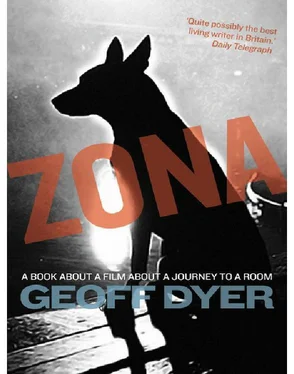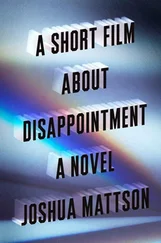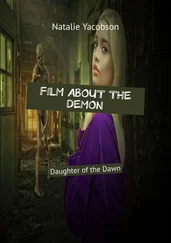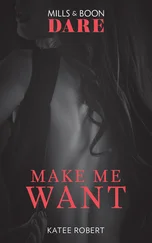Geoff Dyer
Zona: A Book About a Film about a Journey to a Room
‘Possibly the best living writer in Britain.’ Daily Telegraph
‘Dyer writes like a dream.’ Australian
‘A national treasure.’ Zadie Smith
‘Dyer is a witty and concise observer of landscapes: social, geographical and emotional…His eccentric charm and barbed perceptiveness will hook you to the end.’
The Times
‘One of my favourite of all contemporary writers.’
Alain de Botton
‘His work exudes an interpretative energy that breathes ideas like spring water on ancient stone, and goes straight to the heart.’ Canberra Times
‘Geoff Dyer is a true original — one of those rare voices in contemporary literature that never ceases to surprise, disturb and delight. Risky, breathtakingly candid, intellectual, cool, outrageous, laconic and sometimes shocking, Geoff Dyer is a must-read for our confused and perplexing times.’ William Boyd
‘Dyer’s style is studiedly conversational and discursive, frequently very funny.’ Telegraph
Geoff Dyer’s books include But Beautiful, winner of the Somerset Maugham Prize, Out of Sheer Rage, a National Book Critics Circle Award finalist, the essay collection Working the Room and the novel Jeff in Venice, Death in Varanasi. He lives in London and contributes to the Observer, Guardian, New Statesman and New York Times . geoffdyer.com
Zona: A Book About a Film about a Journey to a Room
I watched the film until the film itself became a kind of blindness.
— G. C. Waldrep, ‘D. W. Griffith at Gettysburg’
After all, the best way of talking about what you love is to speak of it lightly.
— Albert Camus, ‘A Short Guide to Towns Without a Past’
Or was it possibly nothing more than a fundamentally recognizable genre all the while, no matter what Writer averred?
Nothing more or less than a read?
— David Markson, This Is Not a Novel
AN EMPTY BAR, possibly not even open, with a single table, no bigger than a small round table, but higher, the sort you lean against — there are no stools — while you stand and drink. If floorboards could speak these look like they could tell a tale or two, though the tales would turn out to be one and the same, ending with the same old lament (after a few drinks people think they can walk all over me), not just in terms of what happens here but in bars the world over. We are, in other words, already in a realm of universal truth. The barman comes in from the back — he’s wearing a white barman’s jacket — lights a cigarette and turns on the lights, two fluorescent tubes, one of which doesn’t work properly: it flickers. He looks at the flickering light. You can see him thinking, ‘That needs fixing’, which is not the same thing at all as ‘I’ll fix that today’, but which is very nearly the same as ‘It’ll never be fixed.’ Daily life is full of these small repeated astonishments, hopes (that it might somehow have fixed itself overnight) and resignations (it hasn’t and won’t). A tall man — a customer! — enters the bar, puts his knapsack under the table, the small round table you lean against while drinking. He’s tall but not young, balding, obviously not a terrorist, and there’s no way that his knapsack could contain a bomb, but this unremarkable action — putting a knapsack under the table in a bar — is not one that can now go unremarked, especially by someone who first saw Stalker (on Sunday, February 8, 1981) shortly after seeing Battle of Algiers. He orders something from the barman. The fact that the barman’s jacket is white emphasizes how not terribly clean it is. Although it’s a jacket it also serves as a towel, possibly as a dishcloth, and maybe as a hankie too. The whole place looks like it could be dirty but it’s too dingy to tell and the credits in yellow Russian letters — sci-fi Cyrillic — do not exactly clarify the situation.
It’s the kind of bar men meet in prior to a bank job that is destined to go horribly wrong, and the barman is the type to take no notice of anything that’s not his business and the more things that are not his business the better it is for him, even if it means that business is so slow as to be almost nonexistent. Far as he’s concerned, long as he’s here, minding his own business and wearing his grubby barman’s jacket, he’s doing his job, and if no one comes and no one wants anything and nothing needs doing (the wonky light can wait, as can most things) it’s all the same to him. Still smoking, he trudges over with a coffeepot (he’s one of those barmen who has the knack of imbuing the simplest task with grudge, making it feel like one of the labours of a minimum-wage Hercules), pours some coffee for the stranger, goes out back again and leaves him to it, to his coffee, to his sipping and waiting. Of that there can be no doubt: the stranger is definitely waiting for something or someone.
A CAPTION: some kind of meteorite or alien visitation has led to the creation of a miracle: the Zone. Troops were sent in and never returned. It was surrounded by barbed wire and a police cordon…
This caption was added at the behest of the studio, Mosfilm, who wanted to stress the fantastical nature of the Zone (where the subsequent action will be set). They also wanted to make sure that the ‘bourgeois’ country where all this happened could not be identified with the USSR. Hence this mysterious business of the Zone all happened — according to the caption—‘in our small country’, which put everyone off the scent because the USSR, as we all know, covered a very large area and Russia was (still is) huge too. ‘Russia…’, I can hear Laurence Olivier saying it now, in the Barbarossa episode of The World at War. ‘The boundless motherland of Russia.’ Faced with the German invasion of 1941, Russians fell back on the traditional strategy, the strategy that had done for Napoleon and would do for Hitler too: ‘Trade space for time’, a message Tarkovsky took to heart.
THE SOUND OF WATER DRIPPING. We peer through an interior set of doors, into a room. In film-script shorthand ‘Int’ means Interior and ‘Ext’ Exterior. This is a kind of ‘Super-Int’ or ‘Int-int’. Inside already, the camera inches deeper inside. It’s as if Tarkovsky has started where Antonioni left off in the famous inside-out shot at the end of The Passenger and taken it a stage further: inside- in . As slow as that — but without the colour. Antonioni’s earlier Red Desert (1964) would, as the title suggests, be unimaginable without the colour. The colour — Monica Vitti’s green coat — is what makes it wonderful but for the thirty-four-year-old Tarkovsky, interviewed in 1966, the year he completed his second feature, Andrei Rublev, it was ‘the worst of his films after The Cry.’ Because of the colour, because Antonioni got so seduced by ‘Monica Vitti’s red hair against the mists’, because ‘the colour has killed the feeling of truth.’ Well. This takes a bit of chewing and digesting. Take away the colour and what are you left with? You’re left with L’Avventura, I suppose (also with Monica Vitti), and you’re so bored you long for colour, for something to make time pass or to stop you minding that it’s not passing. Since we’re speaking about truth and how it feels, I feel honour bound to admit that L’Avventura is the nearest I have ever come to pure cinematic agony. I saw it one summer, in a tiny cinema in the Fifth Arrondissement of Paris where the screen was no bigger than a big telly. (A black-and-white film, in Italian, with French subtitles, in Paris, in August, in my late twenties: a case study in loneliness.) The only way I was able to get through it was by saying to myself I can’t bear this for another second, even though there was not actually such a thing as a second in L’Avventura. A minute was the minimum increment of temporal measurement. Every second lasted a minute, every minute lasted an hour, and an hour a year, and so on. Trade time for a bigger unit of time. When I finally emerged into the Parisian twilight I was in my early thirties. 1
Читать дальше












